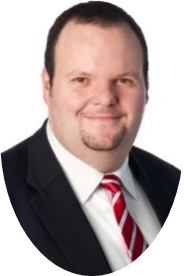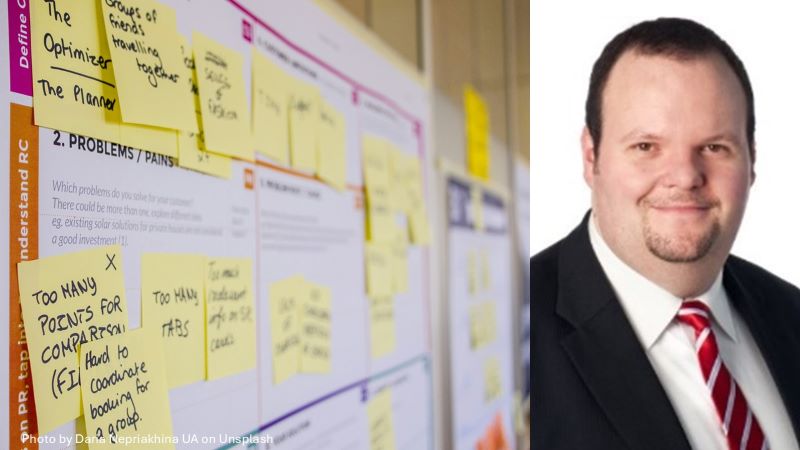From IP administration to IP management – Interview with Matthias Rabbe
On 3. and 4. April the 4. edition of the VDI/VPP seminar takes place in Düsseldorf, covering industry relevant topics around the introduction and improvement of innovation processes. It serves as an opportunity to connect and learn from the industry best practice. Speakers come from reputable companies, such as thyssenkrupp, Andreas Stihl, Pilz, Rheinmetall, Wilo, BHS Corrugated and the CEIPI, University of Strasbourg. Before the event, we interviewed Matthias Rabbe, Head of Intellectual Property at WILO SE, about his presentation.
Question 1: How does WILO’s transition from IP administration to IP management reflect a strategic shift in leveraging intellectual property for business success?
Matthias Rabbe: At WILO, our transition from IP administration to IP management signifies a strategic shift towards leveraging intellectual property as a core business asset. This involves moving beyond mere administrative tasks to actively using IP to drive innovation and competitive advantage. Our IP management system is integrated with business objectives, ensuring that IP strategies align with company goals. This proactive approach allows us to protect our innovations effectively while also identifying opportunities for growth through strategic partnerships and licensing. By focusing on high-quality patents and trademarks, we enhance our market presence and secure long-term business success.
Question 2: What role do you believe IP ambassadors play in WILO’s global IP management strategy, particularly in integrating local insights with global objectives?
Matthias Rabbe: IP ambassadors are crucial in WILO’s global IP management strategy as they serve as local IP managers, bridging the gap between local entities and the central IP department. These ambassadors ensure that local insights and needs are integrated into our broader IP strategy, allowing us to adapt our approach to specific market conditions while maintaining global consistency. They assist engineers in navigating IP processes and help identify counterfeit products, ensuring that our IP is respected and enforced locally. This network of ambassadors fosters a culture of IP awareness across the organization, ensuring that IP considerations are embedded in all stages of product development. By doing so, we ensure that our IP management is both globally aligned and locally effective.
Question 3: How does WILO’s IP strategy, focusing on “Protect, Detect, Respect, and Impact,” contribute to its competitive advantage?
Matthias Rabbe: WILO’s IP strategy is built around our strategic priorities “Protect, Detect, Respect and Impact”, each of which is a key pillar in securing our competitive advantage.
By protecting our innovations with patents and trademarks, we safeguard our market position and reinforce our leading position in the pump industry. Monitoring trends and competitor activities ensures we stay ahead in innovation. Respecting intellectual property rights is vital for operational stability and ethical business practices, fostering a trustworthy brand image. Strategic enforcement and licensing of our IP portfolio enhance its value and drive impactful business results.
These strategic priorities – Protect, Detect, Respect and Impact – are not isolated actions, but strategic priorities derived from our corporate and sustainability strategy. Each priority is carefully aligned to reinforce and contribute to these overarching strategies, ensuring a coherent and comprehensive approach to our business objectives.
Question 4: What future IP management opportunities do you foresee as the company integrates more digital technologies into its products?
Matthias Rabbe: As WILO continues to integrate digital technologies like AI and IoT into its products, we foresee both challenges and opportunities for our IP management framework. One challenge is navigating the evolving legal landscape surrounding software patents and digital innovations. However, this shift also presents opportunities for creating new IP assets and business models. By staying agile and proactive, we can leverage these changes to enhance our competitive position and drive sustainable growth.
About the interviewee
 Dr. Matthias Rabbe is Head of Intellectual Property at WILO SE since 2016, where he heads the central IP department. Before joining WILO SE, he worked for several years as a lawyer in an international commercial law firm in Düsseldorf and advised clients in national and multinational patent disputes, particularly in the fields of information technology and mechanical engineering. He studied law in Osnabrück, where he also completed his doctorate with a thesis on intellectual property law.
Dr. Matthias Rabbe is Head of Intellectual Property at WILO SE since 2016, where he heads the central IP department. Before joining WILO SE, he worked for several years as a lawyer in an international commercial law firm in Düsseldorf and advised clients in national and multinational patent disputes, particularly in the fields of information technology and mechanical engineering. He studied law in Osnabrück, where he also completed his doctorate with a thesis on intellectual property law.



